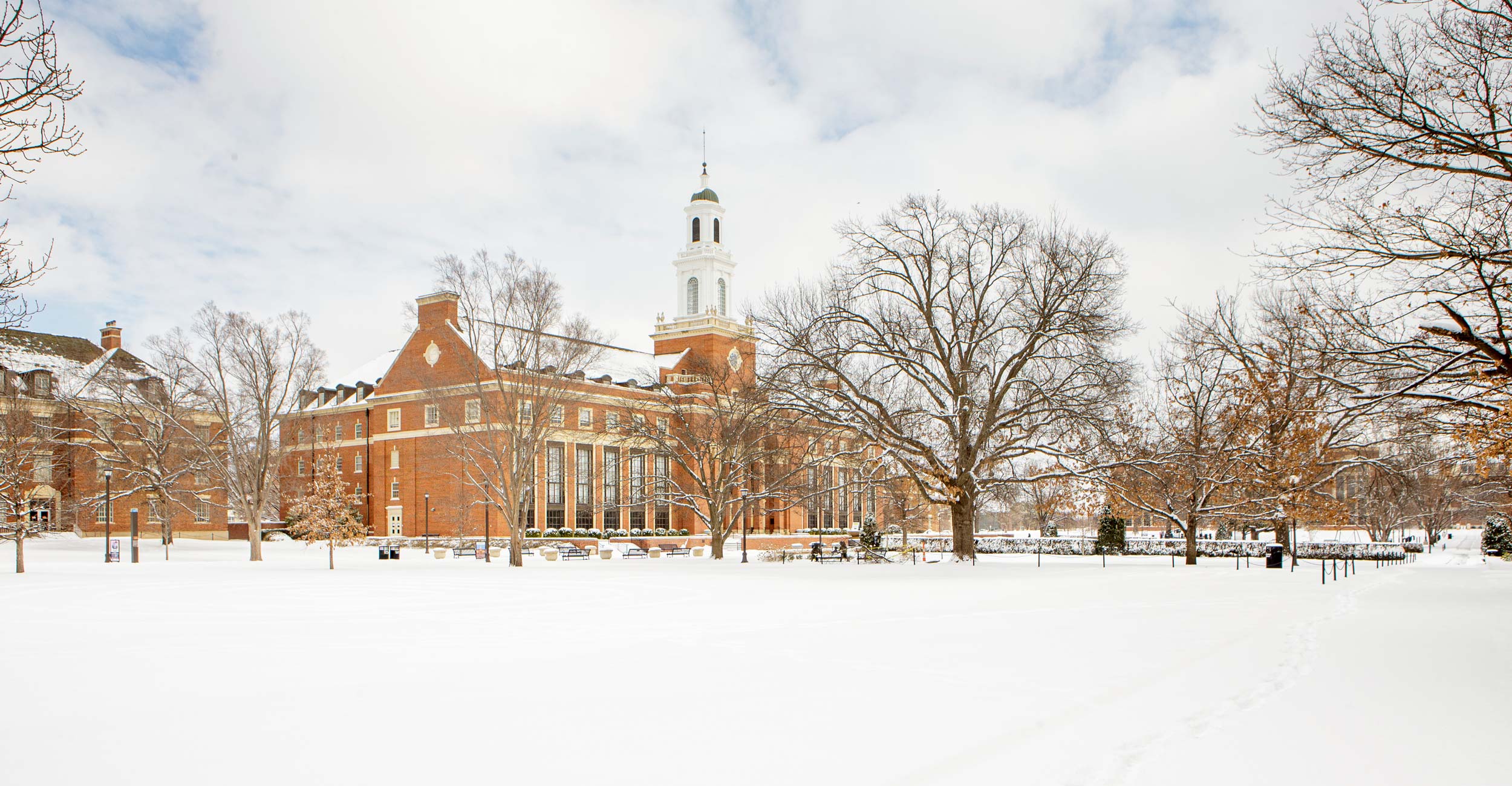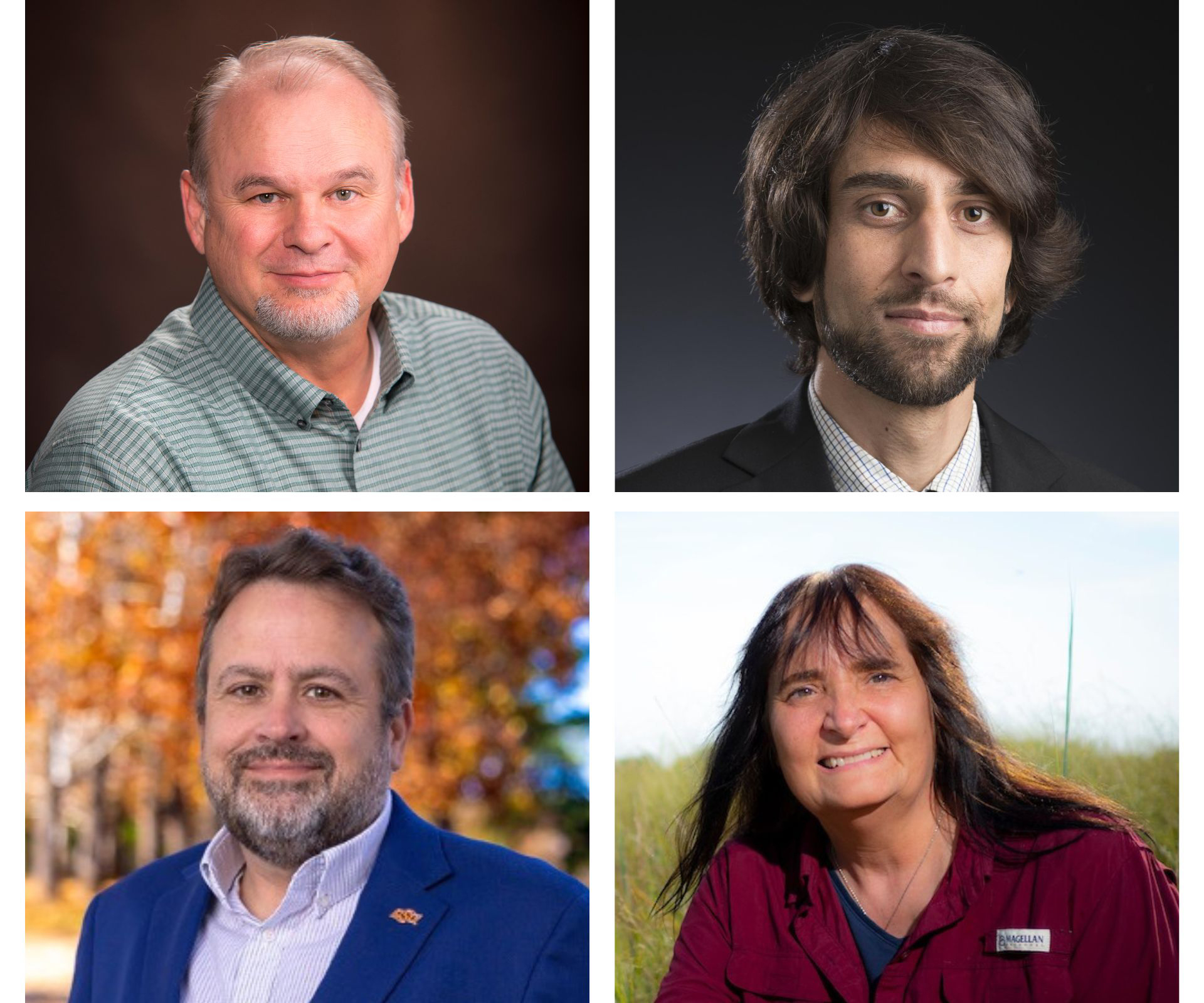
CAS, CEAT and Ag faculty awarded $460K NSF grant for drone research
Wednesday, December 6, 2023
Media Contact: Elizabeth Gosney | CAS Marketing and Communications Manager | 405-744-7497 | egosney@okstate.edu
Faculty members from Oklahoma State University’s College of Arts and Sciences; College of Engineering, Architecture and Technology; and Ferguson College of Agriculture were recently awarded a $460,000 grant from the National Science Foundation Major Research Instrumentation Program to acquire the Advanced Low-altitude Earth Observing System, an unoccupied aircraft system-based instrument.
The faculty research group includes Dr. Hamed Gholizadeh from the Department of Geography, Dr. Jamey Jacob from the School of Mechanical and Aerospace Engineering, Drs. Gail Wilson and Samuel Fuhlendorf from the Department of Natural Resource Ecology and Management, and Dr. Kristen Baum, who recently left OSU’s Department of Integrative Biology for the University of Kansas.
Other OSU faculty involved include Drs. Rodney Will, Elijah Schnitzler, Chris Zou, Benedicte Bachelot, Omkar Joshi, Kevin Wagner, Lu Zhai, Brian Arnall, Brett Carver, Ryan Reuter, Paul Weckler, Priyank Jaiswal and Laura Goodman.
The NSF grant enables the research group to elevate the profile of OSU in UAS-based research. ALEOS will provide unprecedented capabilities to advance current research at OSU and develop new research avenues for internal and external users.
“Although UAS platforms, or drones, are being used by different research groups at OSU to conduct remote sensing research, the capability of our current platforms is limited by the quality of their sensors,” said Gholizadeh, who heads the grant research. “What distinguishes ALEOS from UAS systems currently at OSU is its capability to collect data with much finer resolutions owing to its cutting edge sensors.”

The data from ALEOS would help OSU advance research in areas ranging from ecology to water resource management to agriculture, while also enhancing student training and promoting participation in STEM activities on a statewide scale.
“Data from ALEOS would bridge the gap between fine-scale site measurements to regional-
and global-scale satellite and aircraft measurements,” Gholizadeh said. “Further,
unlike satellites and aircraft, ALEOS can be rapidly deployed and significantly increase
our ability to monitor phenomena that happen over short time periods.”
The timeframe for the acquisition of ALEOS is less than a year away. OSU’s infrastructure
is already prepared to handle the new instrument.
“ALEOS is currently being ordered,” Gholizadeh said. "We anticipate a six-month lead time and we expect ALEOS to be operational by summer 2024. ALEOS will be maintained by the existing infrastructure at OSU's Center for Applications of Remote Sensing and the Unmanned Systems Research Institute. Once operational, different research groups across campus can utilize ALEOS to enhance their research programs.”
Gholizadeh and the rest of the group are confident that their research will help advance President Kayse Shrum’s mission of making OSU the nation’s preeminent land-grant university.
“Following President Shrum’s charge, this recently funded project will expand critical knowledge and expertise to meet society’s most pressing problems through teaching, research and Extension,” Wilson said. "With our close collaborations, we will advance the priority areas of ‘Innovating to nourish the world’ and ‘Enhancing human and animal health’ through an integration with the priority area ‘Leading in aerospace innovation and application’ and increase our regional- and global-scale understanding of the environment under various global changes.”
Story By: Jade Dudley, CAS graduate assistant | jade.dudley@okstate.edu
